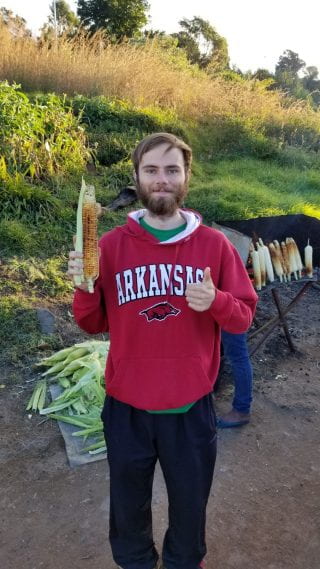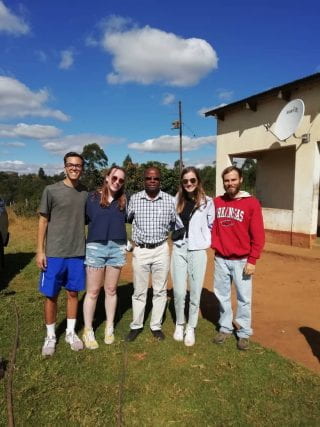By Hunter Swanigan
My name is Hunter Swanigan and I am majoring in Agricultural Business with a minor in International Economic Development. During the summer of 2019 I was able to travel to Eswatini (formerly Swaziland) and work for the Sugar Cane Growers Association. I chose this internship because I wish to pursue a career in International Development, specifically in Sub Saharan Africa, so this experience would show me what it is like to work in a formal business setting in Africa. While there, I was tasked with performing a breakeven analysis based on the distance from the sugar cane farm to the sugar mill where it is processed from cane to usable sugar. In Eswatini, there are only three mills, and the transportation costs have risen 7% over the last 5 years, so it is important for the company to know at what distance it makes financial sense to continue to produce cane and where farmers need to stop producing cane based on size of production and distance to the mill. I was able to make a tool that allows you to change operating costs, harvesting costs, amount of cane produced, transportation costs, price of sucrose, and sucrose content in the cane, and at what distance from the mill a farmer would make a profit, as well as at what distance they would be making a profit, but earning less than the international poverty line of $1.90/day. Additionally, I was able to go to different parts of the country with my boss. I visited the Sugar Cane Museum that highlighted the history of sugar cane in Eswatini, the process of the harvesting, milling, and marketing the sugar, and the future of sugar in country. I also was able to go to a field while workers were harvesting the cane by hand and loading the cane onto trucks to be shipped to the mills, and a separate trip during the planting of the cane. During these excursions across the country, I was able to learn about the history of the country while I was seeing it firsthand, and get a unique experience of seeing sugarcane being planted and harvested that allowed me to understand the industry as a whole more fully.
Last summer I went on the Faculty Led trip to Mozambique where I worked on a poultry farm, so this summer I was able to experience working in Africa in more of a formal business setting in an office. I was able to meet with finance, sustainability, and trade/policy directors who worked for the Sugar Association and learn more about the sugar industry and what they do day-to-day, again showing me what it looks like to work in Africa. I also worked with the CEO of the Cane Growers Association daily. These connections were very helpful with my project and could provide future connections for my career.
This internship showed me that working in a large business in Eswatini is very similar to working in the United States. I am confident that I would work in most African countries, even in an industry that I know very little about, after this experience, which is very beneficial to me as I graduate this fall and will be looking to start my career in International Development.

